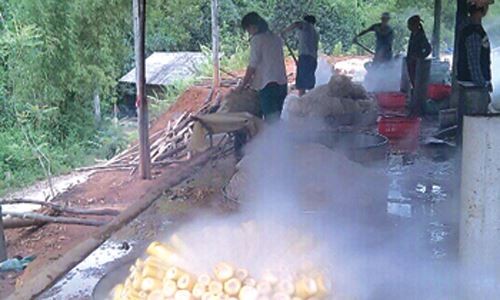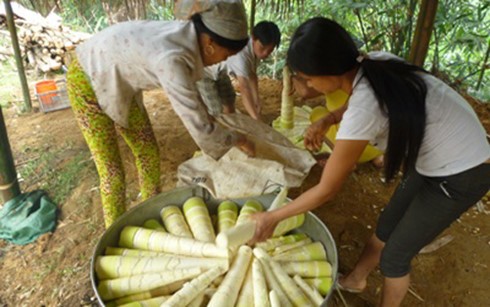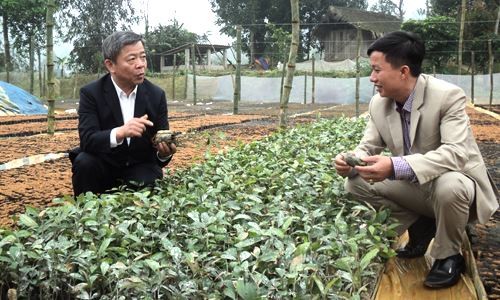(VOVworld ) – Only 40% of 10,000 agricultural cooperatives in Vietnam are operating efficiently. Attendees at a recent meeting to review three years of implementing Vietnam’s Cooperative Law agreed on the need to refine the model of linking production and product consumption by value chain.
 |
Processing Bat Do bamboo shoots in Kien Thanh Cooperative’s production chains.
(Photo: thoibaokinhdoanh.vn) |
Covering an area of 8.8 hectares, the terrain of Kien Thanh commune in Yen Bai province is mainly hilly. Kien Thanh is a planned commune that grows Bat Do bamboo shoots.
Following the restructuring pursuant to the 2012 Cooperative Law, the Kien Thanh General Service Cooperative connected with the Yen Thanh Company in Yen Binh district to set up a production chain to plant, harvest, process, and export Bat Do bamboo shoot products.
Since early last year, the cooperative has handled 90% of the local Bat Do bamboo shoot output, generating revenues of about 270,000 USD and providing jobs for 30 people with a monthly salary of 160 USD each.
 |
| Yen Bai farmers are provided with techniques in intensive farming and Bat Do bamboo shoot processing. (Photo: Yen Bai e-portal) |
Tran Ngoc Su, director of the Kien Thanh Cooperative, told VOV that the investment link based on value chains has contributed to poverty reduction for local ethnic people.
Su said “since we’ve coordinated with the Yen Thanh Company, our products have sold at higher prices. The bamboo shoots have been processed for export, bringing in higher revenues and increasing farmers’ incomes. In the past, one hectare of land growing bamboo shoots earned less than 1,400 USD. Since farmers started cooperating with businesses, their per-hectare earnings have almost doubled.”
The initial results have encouraged other companies to link with cooperatives. The Hung Thinh Company in Tran Yen district, for example, has joined with Truong Xuan, the Tan Huong cooperative in Yen Binh district, and the Kien Thuan cooperative in Van Chan district to grow tea trees in accordance to VietGAP standards. The cooperatives are in charge of mobilizing local tea growers to participate in training courses, learn new farming techniques, and pick tea leaves meeting the set standards for exports.
Chu Quoc Tuan, director of the Hung Thinh Company, said: “we began to work with the cooperative in 2002. At first everything was very confused. But since last May, when production chains were set up, the results have been clear. The production process has gradually become standardized and the quality has improved. Farmers now know how to take care of tea hills and which fertilizers and pesticides are best for tea trees.”
 |
| Vo Kim Cu, President of the Vietnam Cooperative Alliance, is discussing with the director of Kien Thanh Cooperative about seedlings. (Photo: vca.org.vn) |
Vo Kim Cu, President of the Vietnam Cooperative Alliance, says that to develop new-style cooperatives in combination with product value chains, more competent cooperative leaders are needed.
“The cooperative alliance’s responsibilities are to link cooperatives, create a cooperative system for communication, and increase the sense of responsibility of cooperative officials toward sustainable development. The alliance takes responsibility for product quality, prompt delivery, and volume. If a cooperative doesn’t deliver enough goods, its reputation and trademark suffer,” according to Cu.